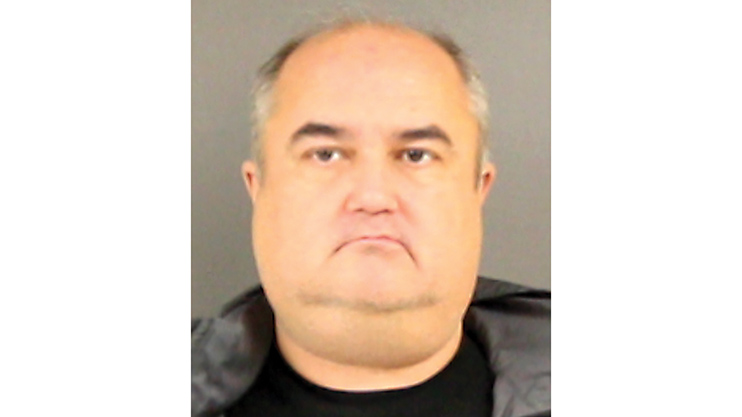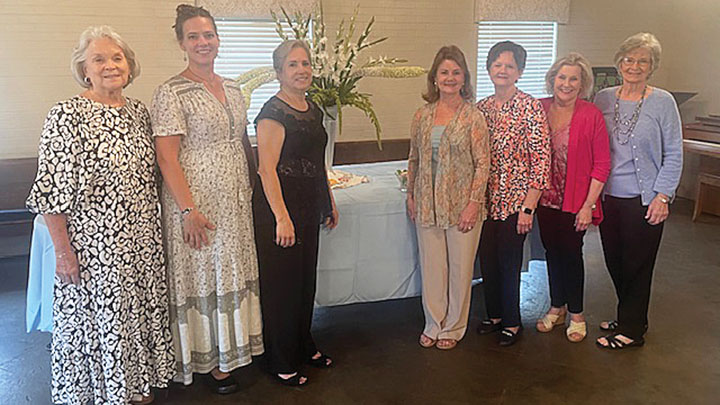Audit of DHS reveals millions wasted
Published 1:11 pm Monday, May 4, 2020

- John Davis
Millions of dollars of grants from the Mississippi Department of Human Services were misspent, converted to personal use, spent on family members and friends of staffers and grantees, or wasted according to an audit released Monday by State Auditor Shad White.
In February, special agents from the State Auditor’s Office arrested John Davis, of Brookhaven, the former director of the Mississippi Department of Human Services, in connection with the embezzlement scheme. After an eight-month investigation, Davis was arrested along with former DHS employee Latimer Smith; Dr. Nancy New, owner and director of the Mississippi Community Education Center and New Learning Inc.; Zach New, assistant executive director of MCEC; Anne McGrew, accountant for MCEC; and Brett DiBiase.
“This completed audit of DHS for the previous year shows the most egregious misspending my staff have seen in their careers at the Office of the State Auditor,” said White. “When you read this 100-plus page audit, you will see that, if there was a way to misspend money, it seems DHS leadership or their grantees thought of it and tried it.”
Trending
The audit of DHS came as a part of the Office of the State Auditor’s yearly Single Audit of federal money moving through state agencies.
The DHS audit showed massive sums were funneled to grantees like the Mississippi Community Education Center and the Family Resource Center of North Mississippi. These two non-profits were given over $98 million in DHS grants over the last three years, mostly from the program Temporary Assistance for Needy Families, or TANF.
The audit’s formal finding is that more than $94 million of that grant money has been “questioned,” meaning auditors either saw clear misspending or could not verify the money had been lawfully spent.
Examples of questioned spending included:
- MCEC and FRC used TANF money to hire lobbyists with TANF money, which is unallowable, often with no paperwork describing the work the lobbyists were hired to do.
- MCEC awarded contracts to and hired former DHS Director John Davis’s family members, sometimes paying them up front in lump sums.
- MCEC and FRC paid large sums to wrestlers Ted Dibiase, Ted Dibiase Jr. and Brett Dibiase for work that was not performed, for unreasonable travel costs, or with little proof the programs helped the needy.
- MCEC and FRC used TANF money to fund religious concerts with no proof they benefitted the needy.
- MCEC made multiple donations with TANF money — like donations to the American Heart Association, the Mississippi Highway Patrol, booster clubs, pageants, universities — and provided no proof the donations were used to help the needy. FRC also made unallowable donations.
Among the grantees, MCEC was particularly dependent on TANF funding and engaged in extensive misspending. From 2016 to 2019, MCEC was given more than $60 million in grants from DHS, while raising just under $1.6 million from other sources. Examples of questioned spending at MCEC included:
- MCEC paid Victory Sports Foundation TANF money for fitness programs for Mississippi legislators and other elected officials/staffers at no charge.
- MCEC purchased three vehicles with grant funds, each for over $50,000, for Nancy New (Director of MCEC), Zach New and Jess New. MCEC also paid salaries, cell phone bills and other costs for a variety of members of the New family.
- MCEC made many unallowable sports-related expenditures — like sponsoring a college baseball tournament — for services that could not be proven to benefit the needy. Some sports-related spending was for services that were not actually performed.
- MCEC transferred over $6 million to a private school and organization owned by Nancy New and also purchased curricula and supplies with TANF funds for the school.
- MCEC paid a speeding ticket for Nancy New with TANF funds.
- MCEC issued a $3,000 check to the bookkeeper of MCEC with a handwritten note saying the payment was actually for John Davis.
- MCEC paid a variety of consultants, including Jess New, for no clear deliverables or where there was no proof the spending met TANF requirements.
- Zach New took a loan out against his MCEC retirement plan and repaid the loan with TANF money.
- MCEC paid for extensive unallowable advertising, like using TANF money to advertise at the NCAA basketball tournament and a college football bowl game. TANF money was also used to purchase tickets to a college football game.
- MCEC paid excessive rent well above market value to a holding company owned by Zach and Nancy New. Sometimes the rent paid for spaces that were not used for TANF-related purposes.
The unallowable spending was achieved through a variety improper activities, such as: DHS Director Davis limiting monitoring of sub-grantees; forged documents; sub-grantees providing summaries of expenditures that did not match actual expenditures; a limited or nonexistent RFP process for selecting sub-grantees; fraudulent accounting entries that misstate actual payees; and a failure by DHS staff to report obviously improper transactions to law enforcement.
Trending
Auditors have recommended current DHS leadership take steps to remedy these problems.
“DHS staff should immediately move to seize any property that was purchased by grantees with taxpayer money, as that property belongs to the taxpayers,” said White. “That property does not belong to the Auditor’s office, so we cannot do this for them, but it should be marked as DHS property, and DHS should use their legal authority and move quickly to seize it.”
The audit also suggested DHS conduct an internal investigation into current and former DHS staff who may have played a role in the fraud.
The Single Audit report has now been forwarded to the federal government, who will determine the consequences for DHS, which could include cuts to future grants from the federal government or penalties.
“This audit should be a wake-up call to everyone in government. The old way of doing things, where you do whatever your boss or a person who controls a lot of money tells you to do, or you ignore the law around how to spend money because you think no one is looking — those days are over,” said White.





